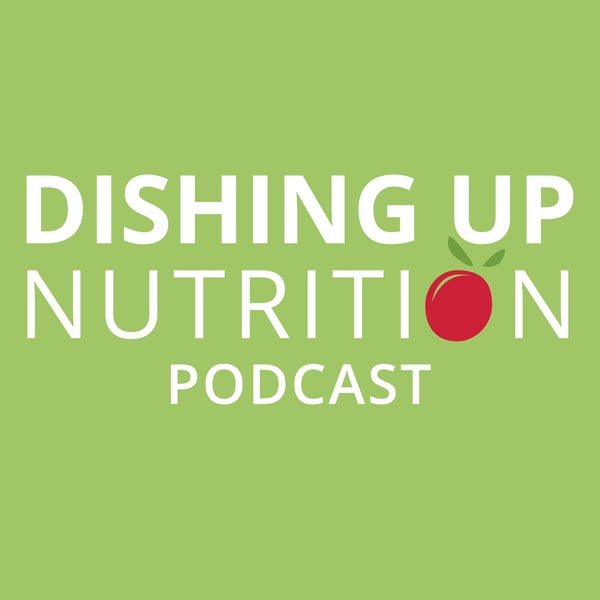Do High Histamine Foods Trigger Allergies? - Ask a Nutritionist
Dishing Up Nutrition
Nutritional Weight & Wellness, Inc.
4 • 818 Ratings
🗓️ 29 May 2025
⏱️ 18 minutes
🧾️ Download transcript
Summary
Transcript
Click on a timestamp to play from that location
| 0:00.0 | Welcome to Dishing Out Nutrition's midweek Ask a Nutritionist program. |
| 0:13.9 | If you are enjoying this show, let us know by leaving a rating and reviewing it on your favorite podcast platform. |
| 0:21.2 | Your feedback is appreciated and helps others find the podcast. |
| 0:25.2 | Now, on to today's show of answering a question from a fellow Dishing Up Nutrition listener. |
| 0:31.2 | Today's listener's question is, |
| 0:33.8 | Would avoiding high histamine foods help lessen my allergies? |
| 0:38.3 | As a person living with allergies, today's question hits close to home. |
| 0:43.3 | Hello, I am Alyssa, a registered dietitian here at Nutritional Weight and Wellness. |
| 0:49.3 | I see clients in person and virtually from our St. Paul and Egan, Minnesota offices. |
| 0:55.6 | I believe the listener who asked today's question is referring to managing symptoms of allergic rhinitis and not food allergies. |
| 1:04.5 | Allergic rhinitis, or what some people call hay fever, is a condition that affects millions of people worldwide and occurs when a person's |
| 1:12.9 | immune system overreacts to something in the environment. There are two main types of allergic |
| 1:19.0 | rhinitis. Seasonal allergic rhinitis often occurs in the spring, summer, and fall months due |
| 1:25.1 | to outdoor pollen from trees, grasses, weeds, and possibly from outdoor molds. |
| 1:31.5 | Perennial or year-round allergic rhinitis is often caused by indoor allergens, such as dust mites, indoor molds, and dander from animals like dogs or cats. |
| 1:42.6 | Symptoms of allergic rhinitis, while a minor inconvenience for some people, can have a |
| 1:48.2 | significant impact on a person's quality of life. |
| 1:51.6 | Symptoms range in severity and can include things like an itchy nose, mouth or eyes, |
| 1:58.5 | nasal congestion, sneezing, mouth breathing from said nasal congestion, |
| 2:04.4 | snoring, dark circles under the eyes known as allergic shiners and headaches. |
| 2:10.0 | These symptoms can really hinder a person's ability to enjoy daily activities, |
| 2:15.4 | such as having fun outside when the weather is nice, working |
... |
Please login to see the full transcript.
Disclaimer: The podcast and artwork embedded on this page are from Nutritional Weight & Wellness, Inc., and are the property of its owner and not affiliated with or endorsed by Tapesearch.
Generated transcripts are the property of Nutritional Weight & Wellness, Inc. and are distributed freely under the Fair Use doctrine. Transcripts generated by Tapesearch are not guaranteed to be accurate.
Copyright © Tapesearch 2025.

